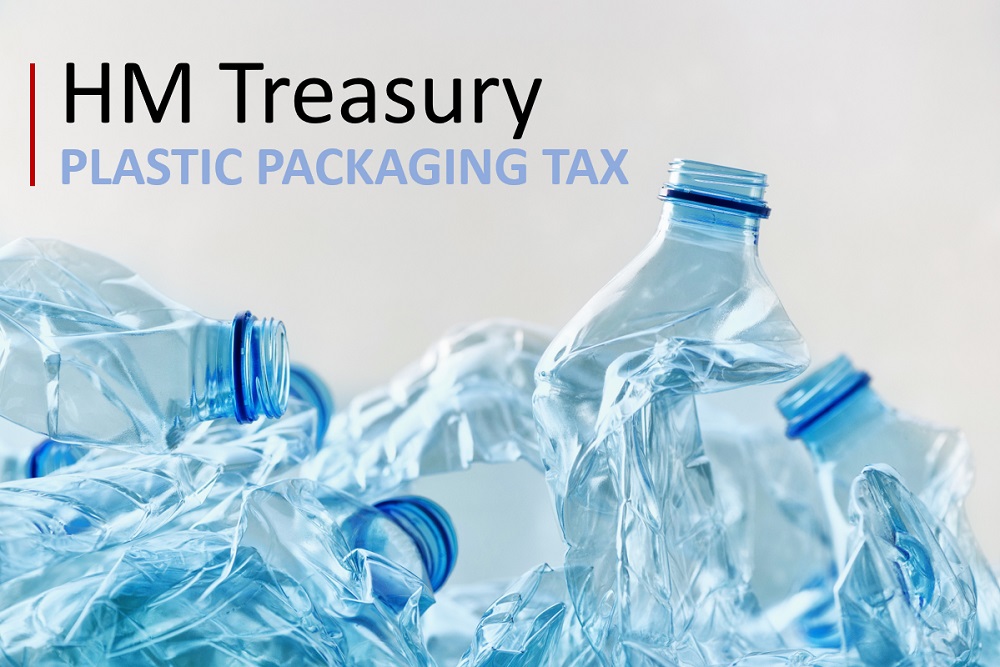The Government has announced that in April 2022 it will introduce a Plastic Packaging Tax (PPT) in an effort to provide a clear economic incentive for businesses to use recycled plastic in the manufacture of plastic packaging, which will create greater demand for this material.
In turn, the tax will stimulate increased levels of recycling and collection of plastic waste to support higher demand for recycled plastic, diverting it away from landfill or incineration.
The new tax follows the ban on single-use plastic straws which was introduced in 2020; that change demonstrated how nimble, quick to act and innovative businesses can be with the right incentives. At the time, many commentators questioned whether the legislation went far enough in addressing throw away culture. The Plastic Packaging Tax due to be introduced next April is the next step in supporting the transition to more sustainable consumption.
Many agriculture, food and farming enterprises will be affected, so it is important to understand how the tax could affect businesses, what it could cost and how to prepare for it.
What is the Plastic Packaging Tax?
The tax will apply to plastic packaging designed for use in the supply chain and single use consumer packaging. Packaging covered by the tax includes products which enable goods to be contained, protected, handled, presented and delivered. For example: yoghurt pots, shrink wrap, plastic labels, reusable plastic crates and plastic glasses.
For the purposes of the Plastic Packaging Tax, plastic means a polymer material to which additives or substances may have been added. If a plastic packaging component is made from multiple materials but contains more plastic by weight (including additives which form part of the plastic) than any other substance, it will be classed as a plastic packaging component for the purposes of the tax.
PPT will also apply to polymers which are biodegradable, compostable and oxo-degradable, meaning ‘greener’ packaging will not automatically be exempt. However, it will not apply to any plastic packaging which contains at least 30% recycled plastic, or any packaging which is not predominantly plastic by weight.
It will be applied to plastic packaging entering the UK market whether manufactured in, or imported into, the UK.
Who will be affected by the Plastic Packaging Tax?
It is expected to affect UK manufacturers of plastic packaging, importers of plastic packaging, business customers of manufacturers and importers of plastic packaging, and consumers who buy plastic packaging or goods in plastic packaging in the UK.
As such, the Plastic Packaging Tax will be felt in many sectors of the UK economy and right through the food supply chain.
How will the Plastic Packaging Tax be applied?
The tax has been set a rate of £200 per metric tonne on plastic packaging placed onto the UK market which contains less than 30% recycled plastic content.
To mitigate against disproportionate administrative burdens in comparison to the tax liability for those who are likely affected, there will be an exemption for manufacturers and importers of less than 10 tonnes of plastic packaging per year.
There are a limited number of plastic products which meet the definition of plastic packaging but are excluded from the tax. These do not need to be included when calculating the total weight of packaging manufactured or imported. They include products which are deigned to be used for long-term storage, are an integral part of the goods (this does not apply to ready meal trays) or are reused for the presentation of goods.
The taxable business is the one that completes the ‘last substantial modification’ to the plastic packaging component. If the last substantial modification is made at the point where empty packaging is filled with product, then it will be the last substantial modification prior to this.
This clause is particularly pertinent to food manufacturers. It is advisable to begin dialogue with tax advisors, suppliers and customers earlier rather than later. Clarity on your tax liabilities now, and those of your supply chain partners, will support relationships and security of supply when the tax comes into force in April 2022. Should there be any significant tax liability or price increases, it also ensures there is time to consider means of mitigating your exposure, such as switching to recycled plastics.
Due diligence will need to be carried out at the tax point. If a business buying plastic packaging components believes the tax should have been paid by a supplier and it is not clearly evidenced on invoices, that business may be subject to secondary liability.
The guidance here is clear: make sure the Plastic Packaging Tax is itemised on invoices from suppliers where they have made the ‘last substantial change’.
Taxable businesses will be expected to hold detailed information on packaging components which will likely include total weight of plastic packaging, weight of plastic packaging incorporating at least 30% recycled plastics and formulas for plastic packaging to evidence which components are subject to taxation. Businesses may also be expected to carry out due diligence on their supply chains to increase transparency in the production of plastic packaging material and ensure tax calculations submitted to HMRC are accurate.
Advice on preparing for the Plastic Packaging Tax:
Food businesses need to consider their response to the incoming tax. It is unlikely costs can be passed on to the consumer in such a highly competitive and price inelastic sector as food so managing the tax liability on plastic packaging is key to maintaining profitability.
- Review your packaging and measure your usage of packaging components which meet the criteria for taxation.
- Open a dialogue with your supply chain, customers and tax advisors, and begin collaborating early to ensure all parties are able to meet their due diligence requirements and manage their tax liability.
- Consider how your packaging fits into your sustainability and ESG strategy. The new tax may be the prompt your business needs to switch to more environmentally friendly materials.

